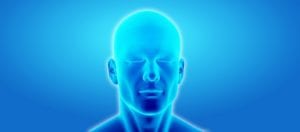The human brain controls your entire body, including your thought processes. According to Web MD1, billions of neurons connect, communicate and work together to ensure that your body works effectively and that your body moves in the way that you direct.
The brain communicates through a complicated series of electrical signals and chemicals, says Web MD2. When a doctor diagnoses a mental health condition, it means that your brain does not communicate in a normal way. In some cases, it causes or contributes to an addiction to drugs or alcohol. In other situations, substance abuse directly causes your mental health condition.
Mental Health and the Brain
The National Institutes on Health2 explain that a mental health condition refers to any condition that alters your thoughts, feelings or behaviors. It usually interferes with your lifestyle and causes distress so that you do not function in a healthy or normal way.
Although the exact impact of a mental health condition on your brain depends on the specific condition and the effects of that condition, usually it results in lower or higher levels of certain chemicals in the brain. As a result, the brain sends inappropriate electrical signals throughout the body and changes an individual’s thoughts, emotional state or actions.
Addiction and the Brain
The National Institute on Drug Abuse3 says that drug or alcohol abuse interferes with the way that your brain communicates by mimicking a chemical in the brain or by causing the brain to release more than the normal amount of natural chemicals. In both situations, it impacts the pleasure or reward center of the brain.
Abusing drugs for a long period causes permanent changes to the brain, says the National Institute on Drug Abuse4. It alters the brain so that an individual compulsively seeks the drugs and engages in abnormal behaviors in an attempt to obtain the substance. Ways that drugs alter personal actions and thoughts include:
- Changing you mood or causing mood swings
- Violent behavior
- Difficulty controlling your body during substance abuse
- Compulsive drug-seeking
- Stealing or engaging in illegal activities for a drug
- Obsessive thoughts about a drug or cravings for the drug
Due to the way drug abuse changes your thoughts and behavior, professionals often call it a substance use disorder rather than a chemical dependence or an addiction. The National Alliance on Mental Illness4 reports that almost 50 percent of individuals with severe mood disorders or related mental health disorders also abuse drugs or alcohol.
Relation Between Addiction and Mental Health
Substance abuse and mental health disorders have several similarities. In some cases, the drug abuse causes the mental health disorder by changing or altering your brain’s natural chemical balances. In other situations, individuals use drugs or alcohol in an attempt to control or manage the symptoms of a mental health disorder.
Unfortunately, self-medicating with drugs or alcohol actually makes the symptoms of a mental health condition more severe. In the long-term, drugs alter your brain and cause an addition or chemical dependency that requires professional assistance for long-term recovery goals.
Co-occurring disorders impact the way that you think and behave. When you abuse drugs or alcohol, it makes the symptoms of your mental health condition more severe and uncomfortable. In an integrated treatment program, you address the addiction and the mental health condition at the same time so that you avoid drugs in the future and start improving your long-term recovery results and personal goals.
References:
- Joseph Goldberg, M.D., The Brain and Mental Illness, Web MD, July 8, 2014, http://www.webmd.com/mental-health/brain-mental-illness
- Defining Mental Illness, The National Institutes on Health, 2007, http://www.ncbi.nlm.nih.gov/books/NBK20369/
- Drugs and the Brain, The National Institute on Drug Abuse, July 2014, http://www.drugabuse.gov/publications/drugs-brains-behavior-science-addiction/drugs-brain
- Robert Drake, M.D., Dual Diagnosis: Substance Abuse and Mental Illness, The National Alliance on Mental Illness, January 2013, http://www2.nami.org/Content/NavigationMenu/Inform_Yourself/About_Mental_Illness/By_Illness/Dual_Diagnosis_Substance_Abuse_and_Mental_Illness.htm










